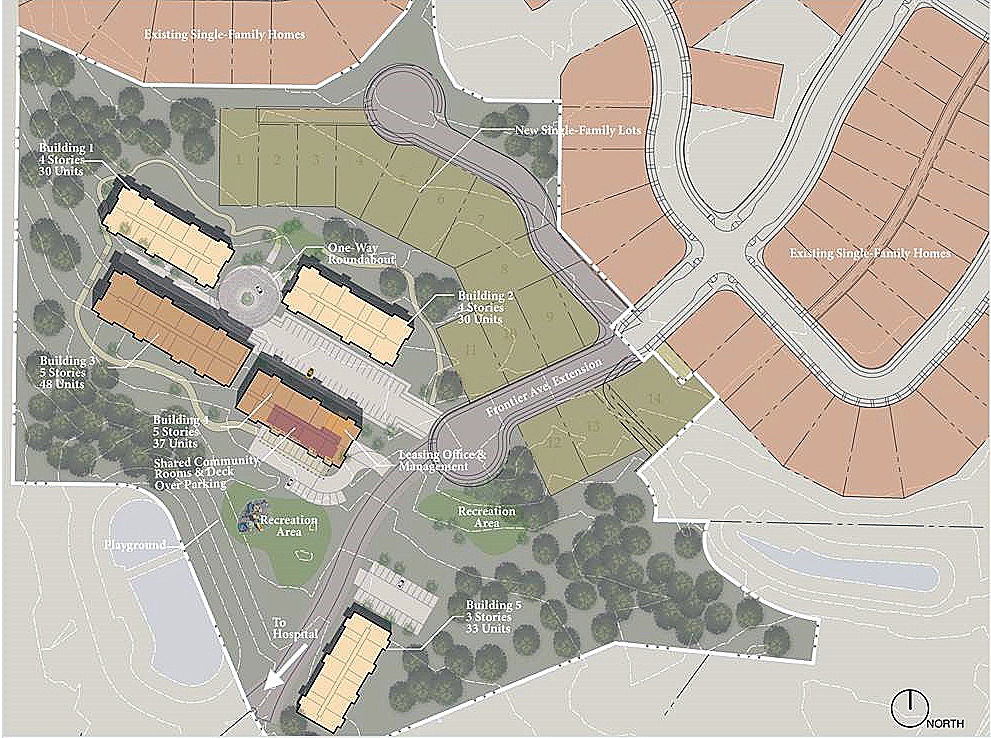Snoqualmie has talked about affordable housing. North Bend has talked about it. Four years ago, Imagine Housing was pursuing an affordable development in Snoqualmie, but hit the pause button in response to vocal opposition from the public and questions from Snoqualmie officials. North Bend’s Umpqua Bank has hosted two community wide forums on affordable housing in the past year.
Despite that history, the idea of creating affordable housing in the Valley has not had much traction. It seems that the problem was in how people defined affordable.
When Nikki Devlin, the catering sales manager at TPC Snoqualmie Ridge spoke as the face of affordable housing April 27 at the Snoqualmie Valley Chamber of Commerce luncheon, though, the definition began to change.
Devlin, a college graduate with a full-time job in Snoqualmie, commuted to work from Everett until recently, when she found another apartment, in Federal Way. Surprised whispers ran through the audience as she talked about her 45-mile commute.
“I just come here and use your resources, and go home,” she said.
Then Devlin talked about her goals. She and her fiance, also a college graduate with a full-time job, were saving money to get married and buy a house, she said. She started using budgeting software and found that 54 to 65 percent of her income went to rent each month.
The whispers got louder.
“That’s crazy!” one person said.
The numbers got more remarkable. Almost 4,000 people, like Devlin, work in Snoqualmie but don’t live there. That includes 285 teachers and 500 staff members of the Snoqualmie Valley School District. To rent a one-bedroom apartment in Snoqualmie, a minimum-wage worker would have to work 190 hours per week — 22 more hours than are in a week.
“Affordable housing is not low-income housing,” said Chris Jowell of Imagine Housing, which has helped build successful affordable housing developments in the Puget Sound area. “Everybody’s been priced out everywhere,” he said.
Imagine is working with Murray Franklyn to create a 160-unit apartment complex on Snoqualmie Ridge, offering one-, two- and three-bedroom units for rent for households earning up to 60 percent of the median income ($38,000 for a single, $54,200 for a family of four). The apartments will be bordered on one side by 14 market-rate homes, also to be built by Murray Franklyn.
The development is in the same location that was proposed in 2012, but it has broader support now, including a $50,000 grant the Snoqualmie Tribe provided Imagine to reconsider the housing project last year, said Sybil Glasby, director of housing development with Imagine.
Glasby and Jowell also spoke at the March 30 Affordable Housing Forum about the planned development of parcel S20.
Private donors have provided the land and much of the funds to build the S20 project, estimated at $40 million, Glasby said, and the city of Snoqualmie had agreed to waive impact fees for the project. Imagine had also started talking with Snoqualmie Valley Transportation about serving the development.
“We have the whole community in this project.”
Imagine will present updated plans to the Snoqualmie Planning Commission on May 16 and a public lunch-and-learn event that will likely be in June (NOTE: The originally scheduled event, 1 to 2 p.m. May 20 at Snoqualmie Library has been postponed). Glasby and Jowell hope, if the reviews go well, that construction starts next summer and is complete by summer 2018.



